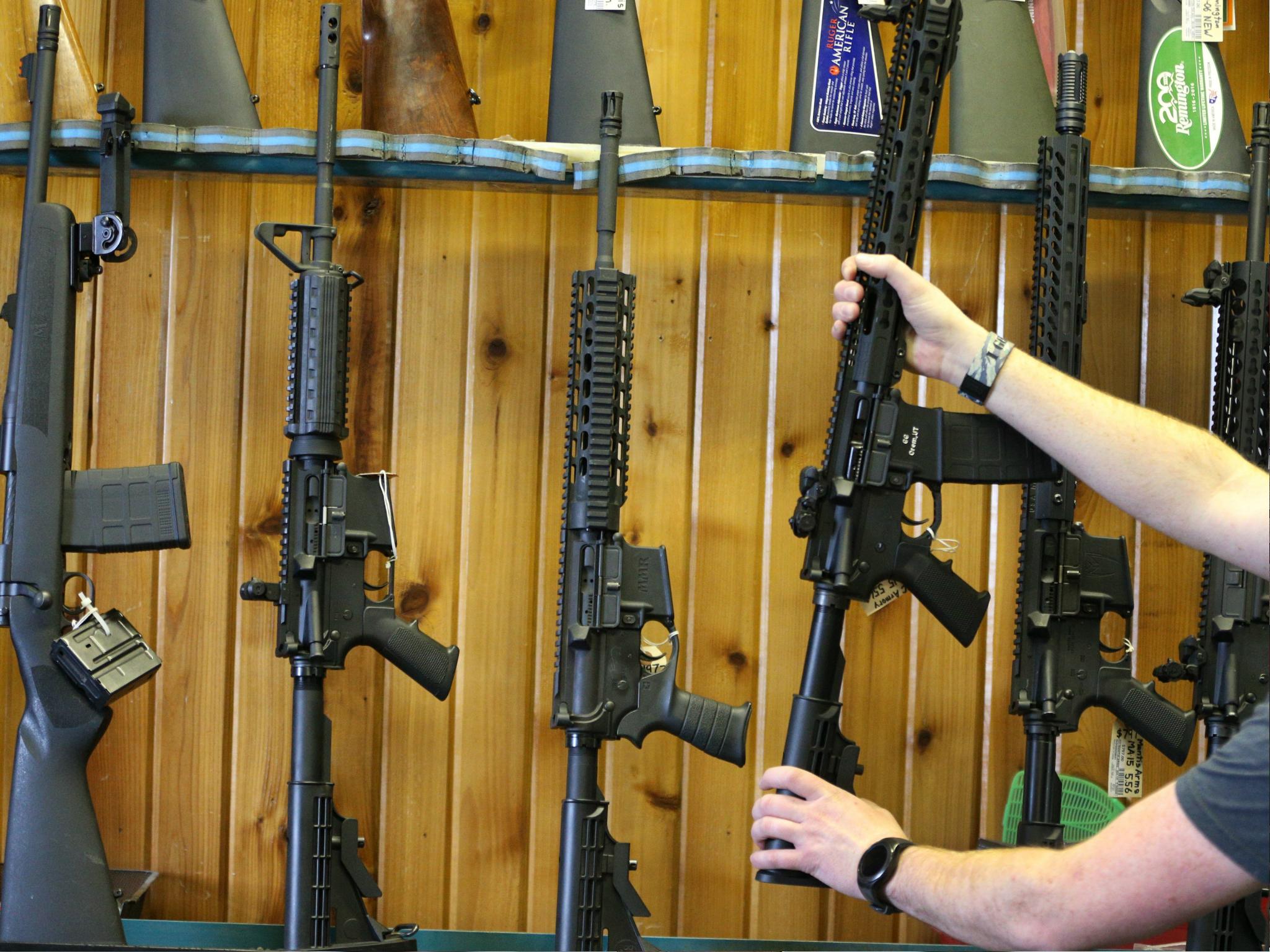Donald Trump considers ‘unilateral’ ban on bump stocks — but does he have the power to do so?
The Obama administration tried to regulate the gun accessory, but argued that existing law does not give the executive branch that power

President Donald Trump says he does not care what Congress thinks, he is going to ban “bump stocks” following the shooting in Parkland, Florida unilaterally if need be — even though it is not clear that he legally can.
Mr Trump reiterated the promise Monday after indicating he was considering the measure last week, figuring that he could use his authority as President to instruct his executive branch to find a way to regulate the weapons accessories that allow for near-automatic fire even without legislative approval.
“I’m writing that out myself. I don’t care if Congress does it or not. I am writing it out myself,” Mr Trump said during a meeting with state governors at the White House, referring to the accessories that allow firearms to mimic automatic rifle firing speeds.
But, experts note that the President’s predecessor Barack Obama — who was by all measures a bit more of a gun control advocate — thought about doing the same thing, and ultimately decided against what Mr Trump apparently sees as a gun control layup.
“There are a number of hurdles out in front of this, and so, do I think that there is a reasonable chance that such a thing, through executive action, will come to pass? I don’t believe so,” John Pierce, an attorney with a speciality in firearm laws, told The Independent.
While Mr Trump’s comments come in the aftermath of the Stoneman Douglas High School shooting, the devices were not actually used during that massacre. They were, however, used during the Las Vegas shootings last year when 58 people were killed, prompting the Trump administration to announce that they would be reviewing potential ways to regulate the accessory.
Florida shooting – in pictures
Show all 10That announcement fell in line with what the National Rifle Association (NRA) said it supported at the time, but also conflicted with past positions of the Department of Justice and the Bureau of Alcohol, Tobacco, Firearms and Explosives (ATF), both of which have expressed the opinion that current laws do not allow new regulations.
“The stock has no automatically functioning mechanical parts or springs and performs no automatic mechanical function when installed,” an ATF technology chief wrote in a letter to a bump stock manufacturer in June 2010, explaining why the accessories were not regulated by law. “Accordingly, we find that the ‘bump-stock’ is a firearm part and is not regulated as a firearm under Gun Control Act or the National Firearms Act.”
Politifact, a fact checking organisation that first noted the 2010 letter, also found a similar letter to a separate company making the devices, which use a weapon’s recoil to cause a shooter’s finger to rapidly squeeze the gun trigger.
Mr Pierce said that it would be hard for the Trump administration to find an argument that bump stocks could be regulated in a similar fashion to machine guns. Machine guns, he says, are legally required to have the capacity to discharge multiple rounds with a single press of the trigger. Bump stocks, almost by definition themselves, do not create that situation.
Instead, Mr Pierce said, Mr Trump is likely using the issue to give a concession to gun control advocates after prolonged pressure following the Stoneman Douglas shooting. He thinks it is likely the federal government is once again seeing if they can go through the rule making process, but that gun rights groups — including, potentially, the NRA — would likely sue any real attempts to regulate bump stocks immediately.
“I think President Trump is probably looking to throw bump stocks under the bus as an offering to try and move beyond the issue, because it’s not something a huge number of gun owners own, and therefore would be a politically expedient sacrifice,” Mr Pierce said. “But, in the real world of public policy and public safety, it would do nothing.”
Subscribe to Independent Premium to bookmark this article
Want to bookmark your favourite articles and stories to read or reference later? Start your Independent Premium subscription today.

Join our commenting forum
Join thought-provoking conversations, follow other Independent readers and see their replies